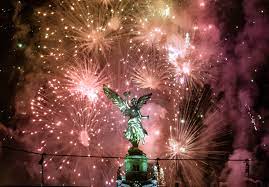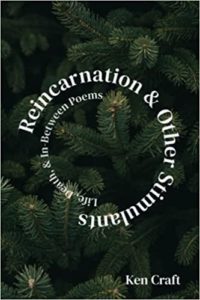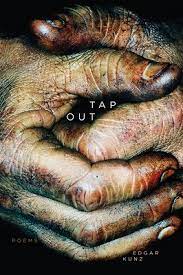
A new year. Always a bittersweet thing. Having 2023 on the doorstep, left by someone who wants no part of it, all swaddled and innocent-looking (for now), is a scary thing. Isn’t it every year? Been there, done that, know better. And it all gets you thinking… thinking about stuff you’ve thought a lot about already:
- Is it me, or do celebrations seem “forced” on New Year’s Eve? Like St. Patrick’s Day, it has devolved into a drinking holiday more than any other kind of holiday.
- The best New Year’s Eve I ever spent? One where I broke a commitment to attend a party and stayed home reading E.B. White’s Collected Essays. I never even noticed as midnight came and went. Now that’s a great way to ring in the new–turning pages!
- I noticed the neighbors took down Christmas decorations much sooner than in past years–before New Year’s Eve, even. One reason might be Christmas exhaustion. The material holiday, songs and all, gets foisted on us the day after Halloween nowadays. By December 26th, folks are waving the white flag. Mercy!
- Speaking of, is there a cleaner feeling than a house once the tree is pitched and the decorations are boxed and returned to the basement? Yes, we will find a few needles from the tree along about Easter, but still, it’s a sigh of relief to be done with it once it’s done with you.
- Before you call me a Christmas Curmudgeon, know this. A lot of my fellow Americans really got into the holiday this year because it was comfort food of a sort. Yes, they overindulged in their family traditions, but given the pall over our heads these days (Covid, Russia’s invasion of Ukraine and targeting of civilians, inflation, Agent Orange running for president again, etc.) it made them feel better to go to the birthday party at Farmer Gray’s or to shout “Let it snow! Let it snow! Let it snow!” or to listen to silver bells in the city. Who can blame them for covering themselves in the warm folds of Christmas pasts? They were simply hiding in hopes of making it all go away.
- Resolutions? Don’t do it! They don’t work, especially this time of year. Pick another day to resolve. Arbor Day resolutions, maybe, sturdy as an oak. Then make sure said resolution is measurable and concrete–one you can track and WILL track. Otherwise, who wants to hear it?
- The average American gains around 2 pounds between Thanksgiving and New Year’s, or so I read. Seems low… or so my scale thinks.
- Let’s hear it for January, named after the Roman God Janus, a two-faced sort who looked both forward and back, refusing to play favorites between past and oncoming year. Most folks find it bleak, cold, and insufferable, but January’s all right by me, being holiday-free once the first folds.
- I’ve been avoiding front pages of newspapers lately, cutting right to the sports and the arts sections. Is this similar to the Christmas-as-comfort-food thing? And who am I kidding? Just because all the bad news goes away for me doesn’t mean it goes away, right?
- After enjoying Laura Dassow Walls’ biography of Henry David Thoreau, I might up the ante on my bio-reading for 2023. I already have the door-stopper from Ron Chernow, Grant, and am thinking about a bio of Joyce, too.
- Hopefully, Grant does not become a Broadway show. The thought of ole Ulysses S. traipsing across a stage while singing tunes is enough to discourage any man, although (fact!) he once performed in an army play during the Mexican War.
- This morning, I caught a falling star as I was out in the climate-warmer than usual air. Must be my lucky day, this last one! Should I buy a lottery ticket, maybe? Nah. One tax I don’t have to pay.
- Minor Miracle: How something as small as a chickadee, titmouse, or nuthatch can not only live in winter, warm of frigid, but do it joyfully.
- Speaking of taxes and New Year’s, is anyone still watching all of these NCAA bowl games? I didn’t think so. Factoid: Just learned yesterday that the NCAA, one of the biggest money-makers in the nation, is not taxed because of its (ahem) educational mission. The new tax legislation continues this boondoggle. More taxes for you and me, but none for the NCAA sponsored by $$$ Chevrolet $$$ and $$$ Coca-Cola $$$. It’s the American way: we are all equal, except corporations are more equal than the rest of us.
- As the famous line goes: “Government of the corporations, by the corporations, and for the corporations” is here. Poor Mr. Lincoln must be turning over in his grave.
- Also learned yesterday: Many people eat sauerkraut on New Year’s for good luck. Really? My grandmother used to make it in a crock at home. Fermented was big with our grandparents, who knew a thing or two about healthy eating before we had “experts” to tell us a thing or two about healthy eating.
- Grandma ate “organic,” too, though the word didn’t even exist because EVERYTHING was organic before the Chemical Age (which came to us along about WWII). So the next time you sniff and dismiss yuppies and foodies who spend more for “organic,” remember that it is normal, healthy food that should NOT be overpriced but is thanks to the giant corporations who prefer the profits in irradiated, herbicide- and pesticide-laden foods (not to mention GMOs)—all stuff Grandma would rightly call “science fiction to be avoided.”
- For a guy who avoids front pages, I’m getting awfully political. Good. Get it out of my system. All politics is local, which you might be able to control. Focus your life locally, then, starting with your family.
- Happy New Year, readers May your local dreams come true in the fast-approaching year!








